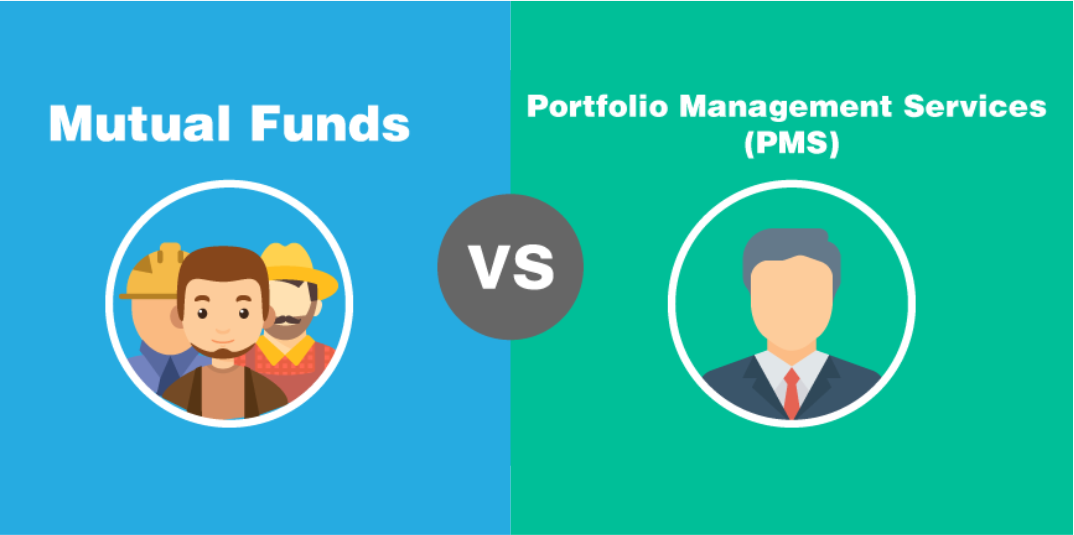PMS vs Mutual Funds - Which Investment Option is Better?

PMS (Portfolio Management Services) and mutual funds are both investment options available in India, but they differ in several aspects. Understanding these differences can help you make informed decisions about your investment portfolio. Here are the key differences between PMS and mutual funds:
Structure and Regulation:
Mutual Funds:
Mutual funds are structured as trusts and are regulated by the Securities and Exchange Board of India (SEBI). They pool money from multiple investors and invest in a diversified portfolio of securities.
PMS:
Portfolio Management Services are personalized investment portfolios managed by professional portfolio managers. PMS providers are registered with SEBI but operate as separate entities from mutual funds.
Investment Approach:
Mutual Funds:
Mutual funds typically follow a specific investment objective or strategy, such as large-cap stocks, small-cap stocks, debt securities, etc. They are open to all investors, and their portfolios are managed collectively for all investors.
PMS:
PMS offers personalized investment strategies tailored to individual investors' preferences and goals. The portfolio manager actively manages the investments on behalf of each investor, making investment decisions based on their specific needs and risk tolerance.
Minimum Investment:
Mutual Funds:
Mutual funds have a low minimum investment requirement, often starting with as little as INR 500 or INR 1,000. This makes them accessible to small investors.
PMS:
PMS generally requires a higher minimum investment compared to mutual funds. The minimum investment can vary but is typically in the range of several lakhs or crores of rupees, making it more suitable for high-net-worth individuals.
Customization and Control:
Mutual Funds:
In mutual funds, investors have limited control over individual securities within the portfolio. The portfolio manager makes all investment decisions on behalf of the investors.
PMS:
PMS offers a higher degree of customization and control. Investors can have direct ownership of the underlying securities in their portfolio, allowing them to customize the portfolio according to their preferences and participate in individual investment decisions.
Fees and Expenses:
Mutual Funds:
Mutual funds charge expenses such as management fees, administrative costs, and sometimes entry/exit loads. The expense ratio is disclosed to investors.
PMS:
PMS typically involves higher fees compared to mutual funds. The fees structure may include a fixed management fee, performance-based fees, and other charges. These fees are negotiated between the investor and the PMS provider.
Liquidity:
Mutual Funds:
Mutual funds provide high liquidity, as investors can buy or sell their units on any business day at the prevailing Net Asset Value (NAV).
PMS:
PMS generally has lower liquidity compared to mutual funds. Investors can typically redeem their investments, but it may involve longer notice periods and exit loads depending on the terms of the PMS agreement.
It's important to evaluate your investment goals, risk tolerance, investment amount, and desired level of control before choosing between PMS and mutual funds. Consulting with a financial advisor can help you make an informed decision based on your specific circumstances.
Discover a wide range of investment options with round-the-clock availability to more than 2500 financial products! Our all-encompassing platform provides a complete selection of investable assets, such as PMS strategies, mutual funds, ULIPs, and AIFs. Embark on an exploration of endless possibilities and effortlessly make well-informed investment choices. Empower your investment decisions today: visit www.finalyca.com




